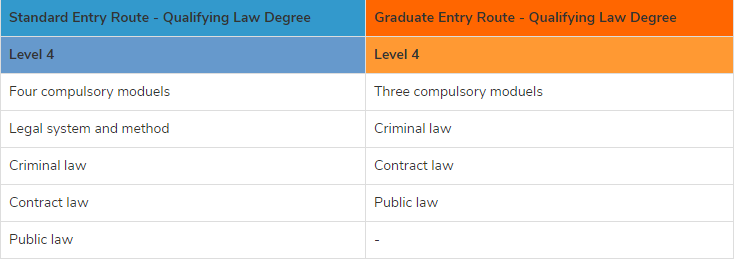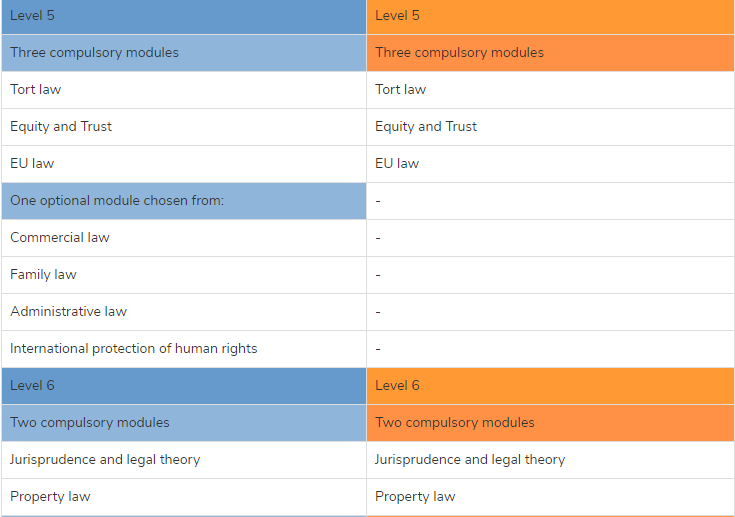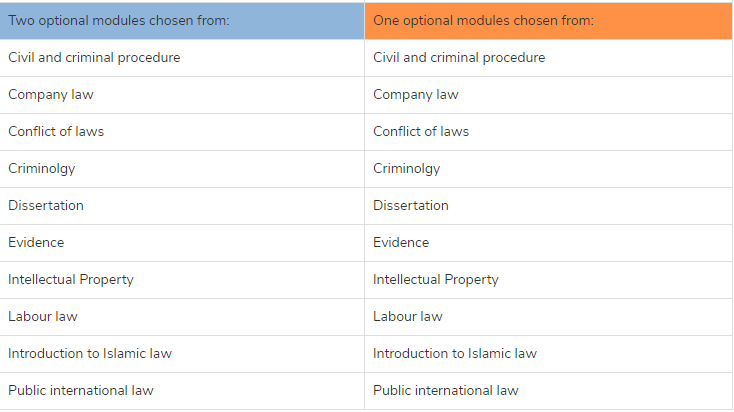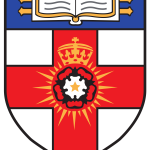Home » Course Layouts » Free Course Layout Udemy
The University of London’s law degree is recognized as a Qualifying Law Degree and the completion of the LLB (Hons) degree allows you to qualify as a Solicitor or a Barrister. The University of London’s LLB (Hons) degree is also recognized by the Pakistan Bar Council and allows you to qualify as an Advocate in Pakistan. When you graduate, you are awarded a University of London degree with the University of London’s crest and Vice-Chancellor’s signature, indicating that you were registered with the University of London.
0
36
English
English [CC]
- Learn basic syntax that can apply to any language.
- Learn what is a programming language and the basic concepts for beginners.
- Understand what is Javascript in it's truest form.
- Know the basic syntax of Javascript.
- Know some hidden quirks in Javascript.
Description
The University of London, founded in 1836, is one of the world’s leading university, internationally recognized for its high academic standards. The University of London established the University of London International Programmes, a distance and flexible learning programme, in 1858 to allow students around the world to study for a top UK qualification. The reputation of the University of London is based on the outstanding teaching and research of its renowned Colleges and specialist institutes. The Colleges are responsible for the academic direction, including syllabus, learning resources, academic support, and assessment of all courses offered by the University of London International Programmes. The International Programmes now has over 54,000 students worldwide, including more than 2,400 in Pakistan.
The University of London International Programme enables you to study for a prestigious University of London qualification wherever you are in the world. University of London’s LLB (Hons) degree is internationally recognized and open doors to lucrative careers in law, business, politics, education, IT and other industries. The high reputation of its LLB (Hons) has been maintained because International Programme students are marked to the same high standards as campus-based students. Upon graduation, you will join a distinguished group of lawyers, solicitors, barristers and judges from around the world who have obtained their law degree through the University of London, including Nelson Mandela.




What qualifications do you need?
To register for the LLB, you will usually be aged 17+ by the date of registration and satisfy the Premier Law College. Each application is considered on an individual basis. If you do not have the standard requirements, our Admissions Panel will consider factors such as alternative or incomplete qualifications (e.g. diplomas/degrees) and relevant work experience.Graduate entry route
For graduate entry, you will need an acceptable undergraduate degree rather than a professional qualification.


- Legal system & methods: This introduction to the English legal system seeks to convey what is distinctive about the common law approach as a legal methodology. The course is vital in initiating students into the process of legal research and the understanding of legal reasoning.
- Criminal law: This course examines general principles of criminal liability, a range of fatal and non-fatal offences against the person and selected offences against property. Attempts to commit offences, secondary liability and defences also form part of the curriculum.
- Elements of the law of contract: This course places its emphasis on understanding the key underlying principles of English law, covering the core topics, including the formation of contracts, capacity to contract and privity, performance and breach of contract and remedies for breach of contract.
- Public law: Focusing upon constitutional issues and reform, students will analyse key issues governing the relation between citizens and the state, including sovereignty and the division of powers between the legislature, executive and administration.
- Jurisprudence and legal theory: Jurisprudence poses the fundamental questions about the nature of law, its place in society and how a legal system operates as a system of rules and as a social institution engaging with ideals of justice and often conflicting moral codes.
- Law of Tort: The law of tort concerns the civil liability for the wrongful infliction of injury by one person upon another. Negligence is a key topic and other topics include the duty of care; nuisance; trespass; defamation; occupiers and employers’ liability.
- Equity and Trusts: Part of equity law, the law of trusts deals with the rules and principles governing the creation and operation of trusts (a particular method of holding property) including express trusts, trusts arising as a matter of law and breach of trust.
- Property Law: Property law centres on the concept of the nature of the various interests that can exist inland, the principles governing the creation, transfer and extinction of these interests and the extent to which those interests are enforceable against third parties.
- Commercial law: Commercial law is concerned with obligations between parties to commercial transactions and the relationship with rules of personal property. Emphasis is placed on both knowledge of principles and the ability to apply the rules of law to achieve practical solutions to practical problems. Students will become familiar with a range of issues including ownership of or title to goods; transfers of title and its effect on third parties; passing of property between buyer and seller.
- Company law: A vital course for anyone intending to operate in a commercial field, the syllabus centres on the way the law regulates companies and the facilities that company law offers, such as limited liability and transferability of shares, as well as corresponding burdens such as duties of disclosure and compliance with statutory procedures.
- EU law [EU law is a required course by the professional bodies in England and Wales for the LLB as a Qualifying Law Degree]: Appealing to students who enjoy public law or who have an interest in public affairs, politics, economics or international relations, the course examines EU institutions and law-making powers as well as the key questions of the impact of EU law on national law and its overall consequences for business enterprises and individuals.
- Evidence: The law of evidence governs what evidence may be presented and contested in the courtroom, techniques for eliciting evidence, and the role of the lawyers, jury and judge in an adversarial system. Highly relevant to actual day-to-day legal practice, this course will appeal particularly to students intending to become courtroom lawyers.
- Intellectual property: The law of intellectual property rights seeks a difficult balance between rewarding the right owner of a piece of intellectual property, and the needs of society to gain access to scientific, technological or cultural benefits. It includes copyright, patent and trademark law with particular emphasis on English law.
- Introduction to Islamic law: The course offers an overview of Islamic law covering its religious historical and contemporary dimensions. The course addresses first the religious and historical foundations of Islamic law before going on to address its application in contemporary jurisdictions.
- International protection of human rights: This course concerns protection afforded to individuals and seeks to develop students’ understanding of the fundamental concepts, principles, theories and philosophies underpinning international human rights, as well as an understanding of the mechanisms installing/enforcing and monitoring these rights.
- Public international law: Public international law concerns legal relations between states but also deals with the role of the UN and other international organisations and, in the fields of human rights and international criminal law, the rights and duties of individuals.
- Labour law: Of appeal to anyone interested in industrial relations, this course relates both to individuals in their workplace and the operation of the labour market in general. The course covers not only individual matters (such as employment contracts, unfair dismissal, redundancy, sex and race discrimination) but also ‘collective’ labour law – including trade union ‘recognition’, the law relating to trade disputes and the protections given to workers who choose to join a trade union.
Course Fee: 800K

Course content
N.A
- 5 stars0
- 4 stars0
- 3 stars0
- 2 stars0
- 1 stars0
No Reviews found for this course.
Instructor
OpenCoursa
Accessible Education for Everyone
5
5
6
24772
4637
We are an educational and skills marketplace to accommodate the needs of skills enhancement and free equal education across the globe to the millions. We are bringing courses and trainings every single day for our users. We welcome everyone woth all ages, all background to learn. There is so much available to learn and deliver to the people.
Explore Free Courses
Access valuable knowledge without any cost.
{"title":"","show_title":"0","post_type":"course","taxonomy":"course-cat","term":"engineering-skills,health-and-safety","post_ids":"","course_style":"free","featured_style":"course6","masonry":"","grid_columns":"clear4 col-md-3","column_width":"268","gutter":"30","grid_number":"4","infinite":"","pagination":"","grid_excerpt_length":"20","grid_link":"1","grid_search":"0","course_type":"","css_class":"","container_css":"","custom_css":""}










